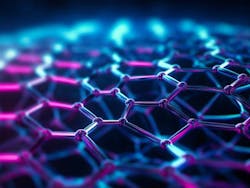Workshop set on project to develop new ways of controlling quantum materials for computing and sensors
ARLINGTON, Va. – U.S. military researchers will conduct an industry workshop later this month on a project to find ways of using engineered light-matter coupling to control or enhance quantum materials for future quantum computing devices that enable quantum enhanced sensing and information processing.
Officials of the U.S. Defense Advanced Research Projects Agency (DARPA) in Arlington, Va., will conduct a daylong briefing and workshop from 10 a.m. to 4 p.m. on 28 Feb. 2024 on the QUAntum Materials Engineering using eLEctrOmagNetic fields (QUAMELEON) project.
The in-person workshop will be at the Hilton Arlington, 950 N. Stafford St., in Arlington, Va. The online workshop will be via the ZoomGov webinar platform.
QUAMELEON seeks to push the boundaries of optical control of solid-state materials, and change material properties with electromagnetic fields at the few-photon level.
Optical tools such as high-finesse cavities can enhance interactions among quantum materials to control quantum degrees of freedom of individual atoms in cavity quantum electrodynamics, DARPA researchers say.
For example, cavity-enhanced light-matter coupling with cold atoms has been known to control photon transport and induce a new supersolid quantum phase of matter.
Applying precision optical tools to condensed matter systems may help unlock optically enhanced materials for quantum computing, researchers say. Engineered light-matter coupling, moreover, also could create or enhance phases of matter including superconductivity, ferroelectricity, and magnetism. Light matter coupling also could modify semiconductor exciton physics for quantum information device applications.
Of particular interest are systems where engineered light-matter coupling can enhance the inter-particle interactions and correlations in a material, researchers say. The objective is to study condensed matter systems where the coherent interaction between light at the few-photon level and matter results in new physics that could apply to quantum information devices.
These kinds of quantum information systems could include quantum computing, quantum-enhanced sensors, light sources or detectors, transducers, and quantum emulators.
Companies interested in attending the in-person and online QUAMELEON workshop should register online no later than noon eastern time on Tuesday 27 Feb. 2024 online at https://events.sa-meetings.com/website/69142/. The workshop is free.
Email workshop questions or concerns to DARPA at [email protected], with QUAMELEON Workshop in the subject line.
For bidding on the QUAMELEON project itself, companies interested should submit abstracts no later than 3 June 2024 to the DARPA submission website at https://baa.darpa.mil. Companies submitting promising abstracts may be invited to submit formal bids.
More information on the QUAMELEON workshop is online at https://sam.gov/opp/ccc8a9f4685b441b82af6449fc8b6d4a/view. More information on the QUAMELEON project is online at https://sam.gov/opp/448e4bc8dc154934a114ed7b06342a50/view.
